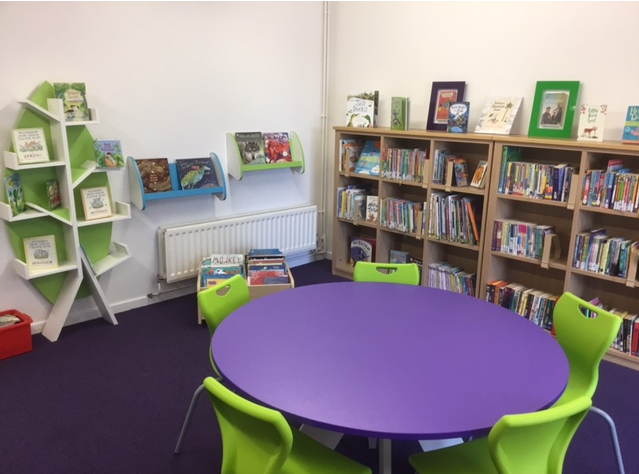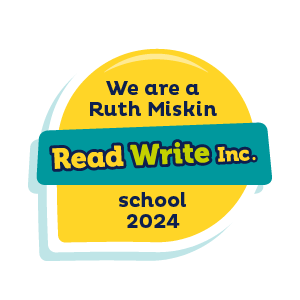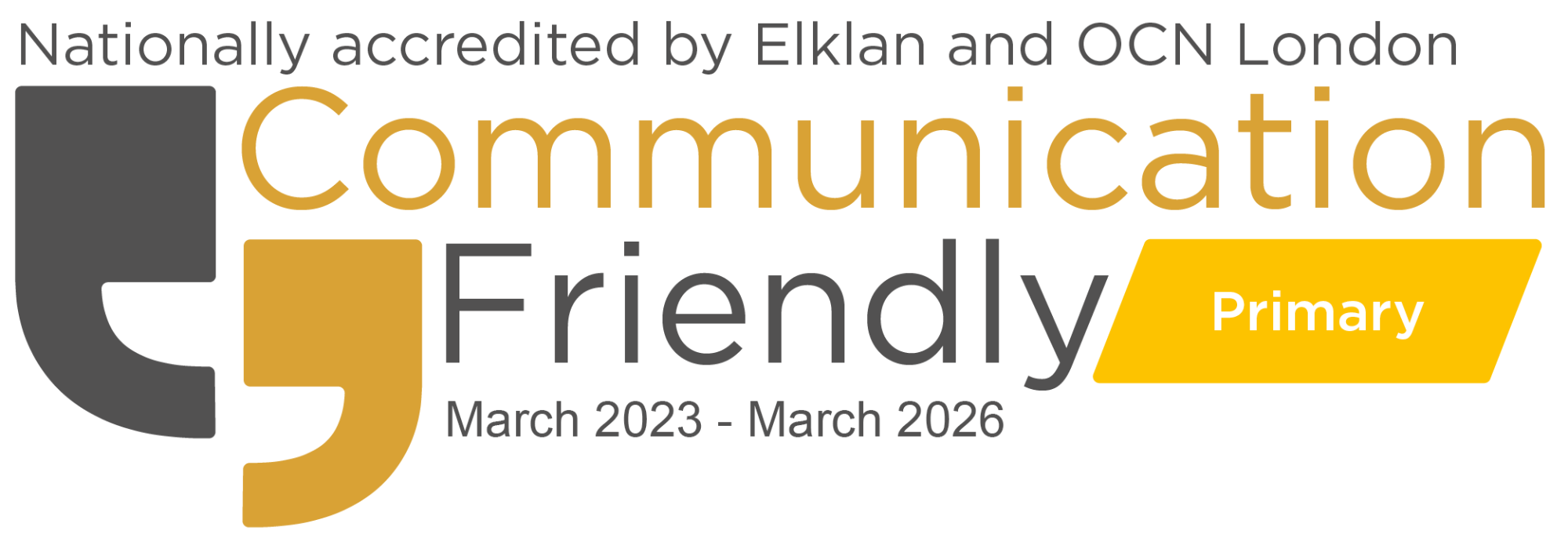English
"In faith and love, we learn and grow."
Intent
The overarching aim for English in the national curriculum is to promote high standards of language and literacy by equipping pupils with a strong command of the spoken and written word, and to develop their love of literature through widespread reading for enjoyment. English is the core of all other subjects. We intend to develop in our children a love of language both written and spoken that will remain with them into adulthood.
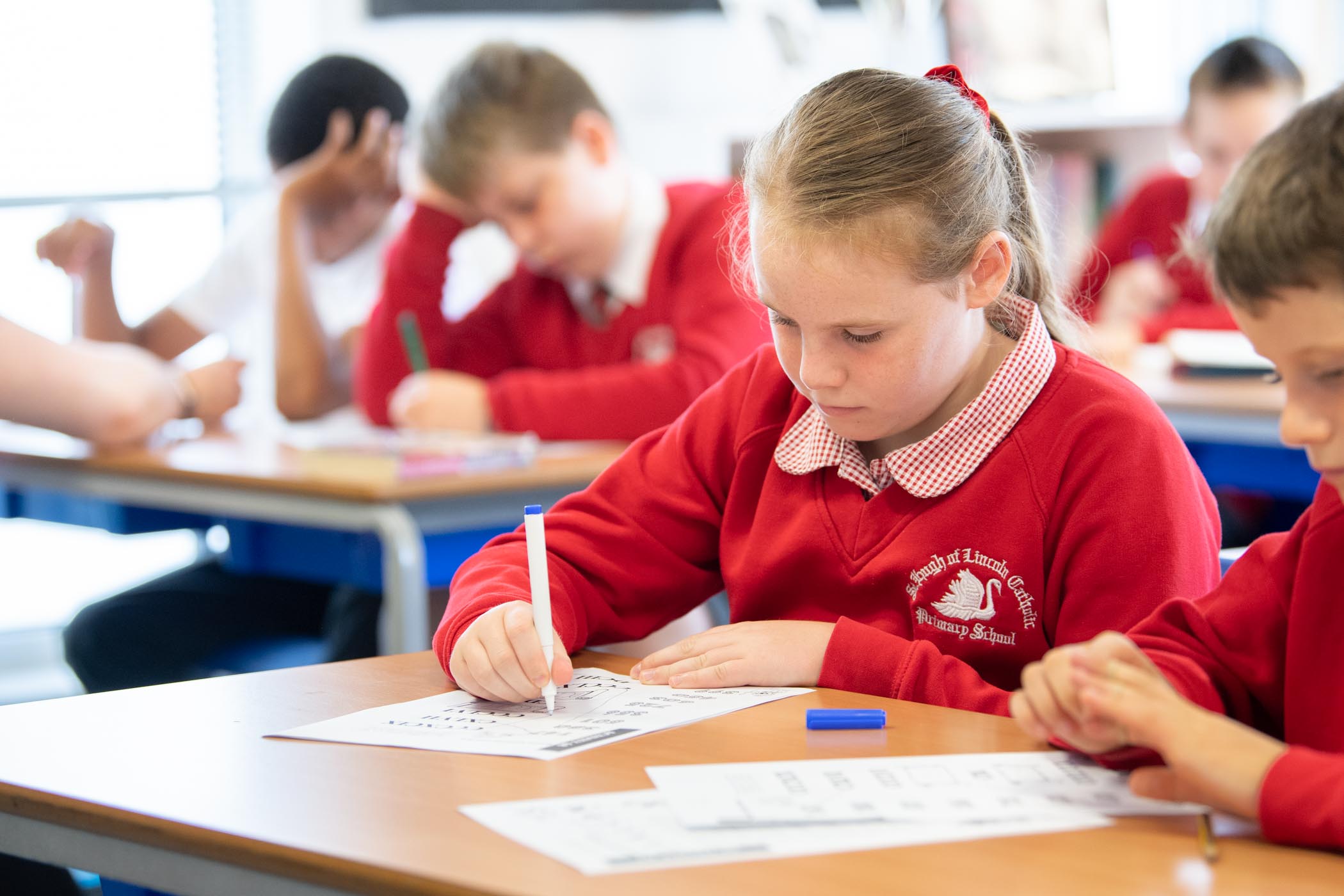
Implementation
Reading
St Hugh of Lincoln has a whole school commitment to the development of reading. We maintain a love of reading and a passion for the development of skills throughout our school so children become fluent and excited readers ready for secondary school.
We teach Read Write Inc. as our systematic synthetic phonics scheme and we teach it with absolute fidelity from Reception to the end of the Autumn Term in Year 2. Staff have benefited from high-quality training and, as a result, they are highly skilled in delivering this extremely effective programme that systematically builds upon what pupils already know. Pupils do not move on through the programme until they have successfully embedded their learning. To support their progress in early reading, we use decodable books as a way of establishing phonic decoding. Formative assessment is constantly used to assess children’s progress, identify learning gaps and target next steps.
Once pupils learn the mechanics of reading through a phonics programme, developing their comprehension skills becomes the primary focus in teaching reading. The skills and knowledge pupils need in order to comprehend are very similar at different ages. Therefore, we use a whole class, mastery approach to teaching reading from Year 2 through to Year 6. The programme we use is called Master Readers.
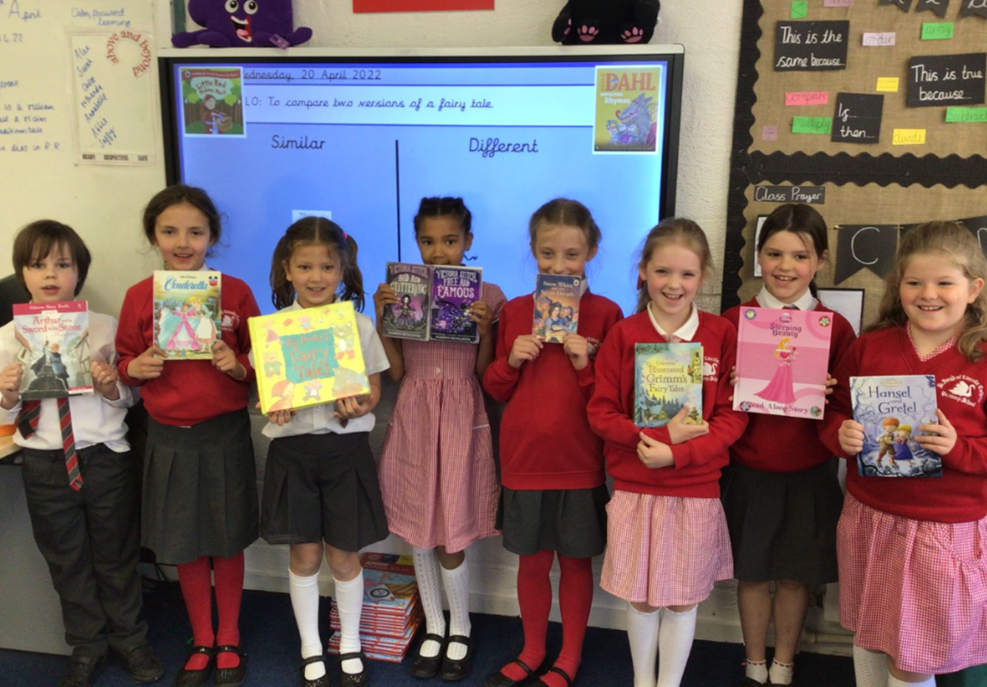
Year 3 - Fairy Tales
Promoting a love of reading
We encourage reading for enjoyment and we have a well-stocked library. We support whole school reading approaches by reading to the children every day and encouraging reading at home. Reading and vocabulary are taught in a purposeful way and children are confident presenting their work and using different types of texts to achieve their goals. Teachers have a wide knowledge of appropriate children’s literature and we are reflective practitioners who can talk confidently about books and use this creativity in our own work.
Writing
The programmes of study for writing at key stages 1 and 2 are constructed: transcription (spelling and handwriting), composition (articulating ideas and structuring them in speech and writing). Teaching at our school develops pupils’ competence in these two dimensions. In addition, pupils are taught how to plan, revise and evaluate their writing.
Spelling
Learning how to spell is a useful lifelong skill. Correct spelling makes a child's work easier to read and understand, and children themselves take pride in being able to spell words accurately. If children are confident in their ability to spell, they are more likely to use more ambitious vocabulary in their writing rather than avoiding less familiar words simply because they are unable to spell them.
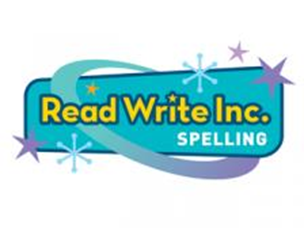
We use the Read, Write Inc. Spelling programme to teach spelling from Years 2-6. This is an interactive and engaging programme, which teaches children the rules and patterns of spelling; there is also a focus on irregular spelling patterns which need to be memorised. Pupils are taught spelling in a daily session of approximately 15 minutes.

Spoken Language
Oral language has a key role in the classroom.
In our school the key areas are:
Speaking; being able to speak clearly and to develop and sustain ideas in talk.
Listening: developing active listening strategies and critical skills of analysis
Group discussion and interaction: taking different roles in groups, making a range of contributions and working collaboratively
Drama: improvising and working in role, scripting and performing and responding to performances.
Pedagogy
Through use of the Master Readers programme, effective structures exist so that teaching is rigorous and engaging, impacting positively on pupil learning in the context of a rich, relevant, broad and balanced curriculum which builds across Key Stages with revisiting and development of skills.
All our lessons include: process-driven Success Criteria, that are referenced during lessons; modelling and clear exposition; adherence to ‘no hands up’ policy; appropriate support and use of resources; effective questioning cycles; positively managed behaviour that eliminates disruption; high quality displays and a well-organised classroom with challenge maintained throughout.
We employ a rigorous approach to ascertain if all pupils have achieved certain criteria to demonstrate the success of learning both currently and over time.
Feedback and questioning is structured around the intended learning and whether pupils know more and remember more regarding knowledge of vocabulary and the practical skills developed.
Shared reading and oracy practice are drivers for developing independent outcomes from the start of school.
Pupils are trained to select and use resources independently and appropriately.
Separate exercise are used for reading and writing to show progress across English which enables pupils to talk about their progress.
Teachers use their subject knowledge to ensure that pupils have a secure understanding of their learning and how it fits within the broader context of the subject and wider curriculum.
Questioning
Hands down questioning and effective questioning cycles allow for targeted questions.
Disadvantaged and other “at risk” pupils will have priority questions.
Teachers and pupils use a variety of questions when teaching which develops thinking at different levels (Bloom’s Taxonomy).
Pupils are encouraged to devise and explore their own questions.
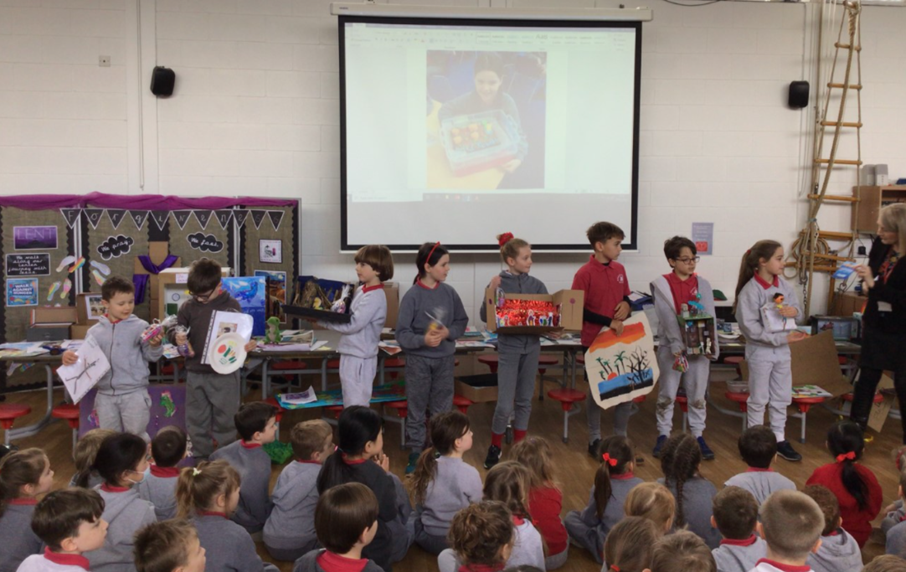
World Book Day Competition Winners 2022
Assessment
Marking of success criteria in books is focused on addressing academic knowledge and practical skills.
A use of both formative and summative assessment allows teachers to observe whether learning is embedded through carefully chosen questioning which in turn informs future planning.
Through careful data analysis, misconceptions are addressed either at an individual, class or cohort level by adjusting teaching as necessary.
We carry our regular book looks, learning walks and discussions with pupils about their learning which enable leaders to have a clear understanding of how effective teaching and learning is, and agree changes where necessary.
Adults in lessons provide pupils with verbal feedback, which is tailored to support the pupil in achieving the learning objective.
Clear ARE and GD expectations are in place for each year group, allowing pupils to demonstrate mastery of English– knowledge, skills and understanding.
Assessment materials are standardised across the school and the timing of their use is planned for key points in the academic year.
Teacher assessments are moderated in partnership with other schools across our MAT.
Outcomes achieved in summative assessments are shared with pupils and parents, allowing pupils and parents to develop a shared understanding of their attainment in relation to year group expectations.
Feedback strategies
Report outcomes do not come as a surprise to pupils and parents
Feedback in books is targeted on addressing misconceptions or deepening their understanding by posing a question for pupils to respond to.
Adults in lessons provide pupils with verbal feedback, which is tailored to support the pupil in achieving the learning objective.

Impact: Outcomes
Pupils are motivated by questioning to extend thinking with a balance of talk, listening, exploring and observing.
Pupils’ books show positive progress in all subjects.
Lessons are planned to ensure pupils master the content of the planned curriculum.
Data shows positive progress for all groups of pupils.
Increasing numbers of pupils achieve expectations in national assessments. Internal data reflects this trend too.
All pupils learn to read confidently with accuracy and fluency so that they are able to access all areas of the curriculum.
All pupils develop a love of reading.
All pupils are able to recall and discuss the subjects they are learning and explain what they remember from lessons they have participated in.
All pupils develop their knowledge of the world by actively engaging with planned opportunities and experiences, and reading quality texts across the curriculum for information and enjoyment.
Pupils enjoy learning and are confident communicators who develop a wide vocabulary.
Quality first teaching and assessment for learning is effective.
In lessons pupils:
Articulate the intended learning and say what they need to do to achieve it, demonstrating excellent attitudes to learning and self- discipline
Evaluate their own progress towards the intended learning and identify next steps
Access the intended learning, maintaining active engagement and motivation throughout
learn to read confidently with accuracy and fluency so that they are able to access all areas of the curriculum.
Develop a love of reading.
Are able to recall and discuss the subjects they are learning and explain what they remember from lessons they have participated in.
Develop their knowledge of the world by actively engaging with planned opportunities and experiences, and reading quality texts across the curriculum for information and enjoyment.
Develop the confidence to access the next stage in their education and are positioned to take advantage of the opportunities presented to them.
Enjoy learning and are confident communicators who develop a wide vocabulary.
Useful Websites:
English Programmes of Study: National Curriculum in England
National curriculum in England: Appendix 1 Spelling
National curriculum in England: Appendix 2 Vocabulary Grammar and Punctuation
Hampshire School Library Service
https://sthugh-hantssls.eplatform.co/

Reading Ambassadors 2023-24

